 Admittedly the Program on Government Oversight (POGO) goes after fraud some bad behavior in the Federal Government and their many contractors. Cheating on government contract bidding and even clever manipulation of the process has been with us for years. Periodically POGO will list these miscreants by the dollar value of their settlements. We keep waiting to see some of them lose their eligibility to do business with the government. We follow the broader healthcare delivery system. Reports surface on “this or that†hospital fined huge amounts of money for, suggested, fraud but continue to do business with the Department of Health and Human Services. The pharmaceutical industry may be fined a billion dollars for “false advertising†without ouster from the system. More disturbing are those events which lead to patient deaths. Even in these cases the only loss is future profits from that drug. Physician enablers profit from the success of these drugs until they are pulled from the market.
Admittedly the Program on Government Oversight (POGO) goes after fraud some bad behavior in the Federal Government and their many contractors. Cheating on government contract bidding and even clever manipulation of the process has been with us for years. Periodically POGO will list these miscreants by the dollar value of their settlements. We keep waiting to see some of them lose their eligibility to do business with the government. We follow the broader healthcare delivery system. Reports surface on “this or that†hospital fined huge amounts of money for, suggested, fraud but continue to do business with the Department of Health and Human Services. The pharmaceutical industry may be fined a billion dollars for “false advertising†without ouster from the system. More disturbing are those events which lead to patient deaths. Even in these cases the only loss is future profits from that drug. Physician enablers profit from the success of these drugs until they are pulled from the market.
Put more simply: how many times do the pharmaceutical companies and private healthcare titans need to be caught perpetrating fraud before they are censured in a way that has any impact on how they act?
Dr. Alain Braillon in his recent review of the book, “Conflicts of interest and the future of medicine: The United States, France and Japan†by Mark A. Rodwin, a professor of law at Suffolk University, minces few words in his review. He sees three major players who have conflicts of interests; Doctors, Regulatory Agencies and the Industry.
These conflicts of interest play out each day as individuals’ maximize personal benefits from the industry.  The “revolving door†between the industry and oversight add to the complexity and lack of accountability. The interactions are seen as tactical actions to optimize personal benefits.
 The greatest harm to the trusting public is a strategic one. The nation’s passion for globalization and Industry greed has placed the delivery of healthcare in the U.S. at substantial risk because of complex, International supply chains coupled with offshore manufacturing of essential materials. Our current  editorial focus is on availability of drugs and their component parts, however the same dynamic applies to almost all necessary medical materials used in healthcare delivery (gloves, masks, etc.). One good example is that none of the critical disease-specific antibiotics needed in an Anthrax event (bioterror or bioterror) are manufactured in the United States. Any disruption in the supply chain from other countries will have a devastating effect on this nation’s public health and healthcare system. As US auto plants found in the aftermath of the Japanese tsunami, the “just in time†paradigm adopted by the system has placed the nation in a perilous position.
The greatest harm to the trusting public is a strategic one. The nation’s passion for globalization and Industry greed has placed the delivery of healthcare in the U.S. at substantial risk because of complex, International supply chains coupled with offshore manufacturing of essential materials. Our current  editorial focus is on availability of drugs and their component parts, however the same dynamic applies to almost all necessary medical materials used in healthcare delivery (gloves, masks, etc.). One good example is that none of the critical disease-specific antibiotics needed in an Anthrax event (bioterror or bioterror) are manufactured in the United States. Any disruption in the supply chain from other countries will have a devastating effect on this nation’s public health and healthcare system. As US auto plants found in the aftermath of the Japanese tsunami, the “just in time†paradigm adopted by the system has placed the nation in a perilous position.
Among the most important decisions at the hospital level in the face of disaster is whether to “Protect in Place or Evacuate†We posit that the current reality has essentially placed hospital authorities with only one crisis option: “Evacuationâ€.
It is possible that naturally occurring or geopolitical events could leave the healthcare system without treatment options and place the trusting public at risk. It is one thing to have a natural event deny auto assembly plant of critical parts but to deny the healthcare system of drugs and materials for the survival of their patients is outrageous. Risk Management in Healthcare is different than in other sectors; the decisions not only impact financial statements – they can mean life and death for patients, staff and other stakeholders.
The day-to-day nefarious actors at the tactical level have survived from the “sins of commission or omission†of oversight mechanisms, perpetrating fraud without restrain and little government oversight. The actors at the strategic levels of oversight (Department of Health and Human Services, Department of Homeland Security, Office of the President, Department of Defense, Congressional, Government Accountability Office, etc.)? As the maxim goes: ‘Everybody’s in Charge, so No One’s in Charge’.Â
Who is watching the Public Health and Healthcare Store? We suggest that this is a worthy project for the Program On Government Oversight.
Jim





0 Comments